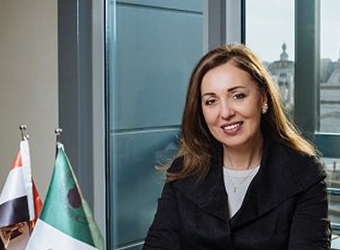A high-level delegation from the African Development Bank (AfDB) has arrived in Egypt to prepare for a review required before disbursing the third and final installment of a three-year $1.5-billion loan.
Leila Mokaddem, Resident Representative for Egypt at the AfDB, said a week earlier that Egypt was on track to receive the final tranche, worth $500 million, before the end of the current year.
In 2015, Egypt signed a three-year $1.5 billion loan agreement with the AfDB; two tranches worth $1 billion have so far been disbursed.
The delegation is led by Khalid Sherif, AfDB’s vice president for regional development, integration and business delivery, who is visiting Egypt for the first time, Mokaddem said in earlier statement.
Sherif is expected to hold high-level talks with a number of Egyptian government ministers and development partners on the strategy of cooperation between Egypt and the bank, as well as discussing current programmes.
The delegation, who are visiting from 2 to 8 October, aim to identify priority areas for development, to draft a framework of how the bank can support Egypt’s economic reform agenda in the coming years.
According to Mokaddem, AfDB’s portfolio in Egypt comprises 29 projects, with a total financing of $2.34 billion; cooperation is based on two elements, development of infrastructure, and the strengthening of governance.
The portfolio is distributed in the sectors of energy, budget support, water and irrigation, agriculture and irrigation, and social security, and consists of loans to the government sector and to the private sector, as well as technical assistance grants, she added.
Since 2015, AfDB has provided 11 grants to Egypt, worth $18.3 million, in a number of sectors, including to support the capabilities of workers in social security networks.
The bank has also funded projects in the social protection sector, including programmes to support education, health, poverty reduction, and microfinance, and a project in Upper Egypt to reduce poverty among smallholder farmers.



